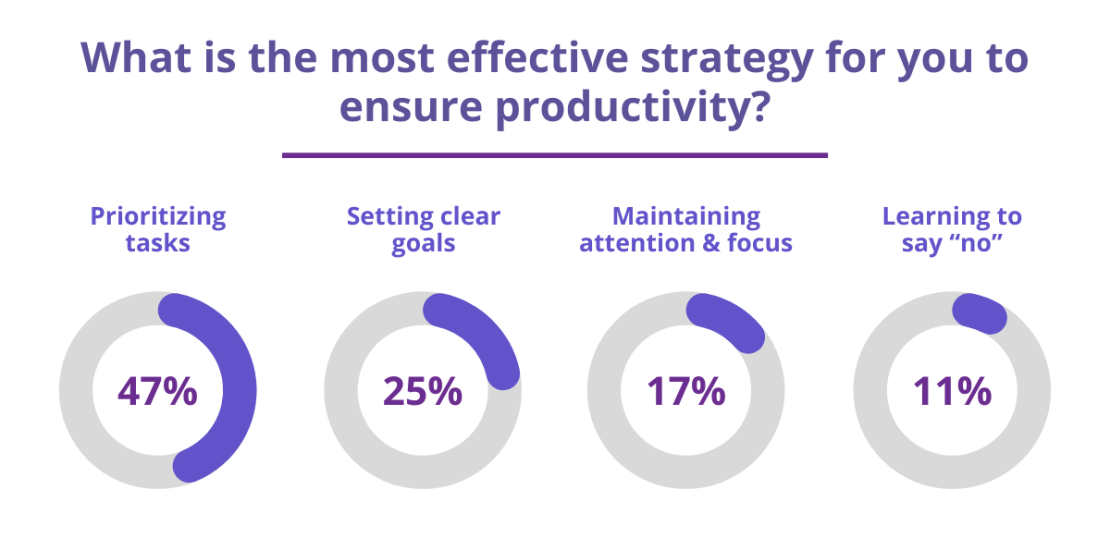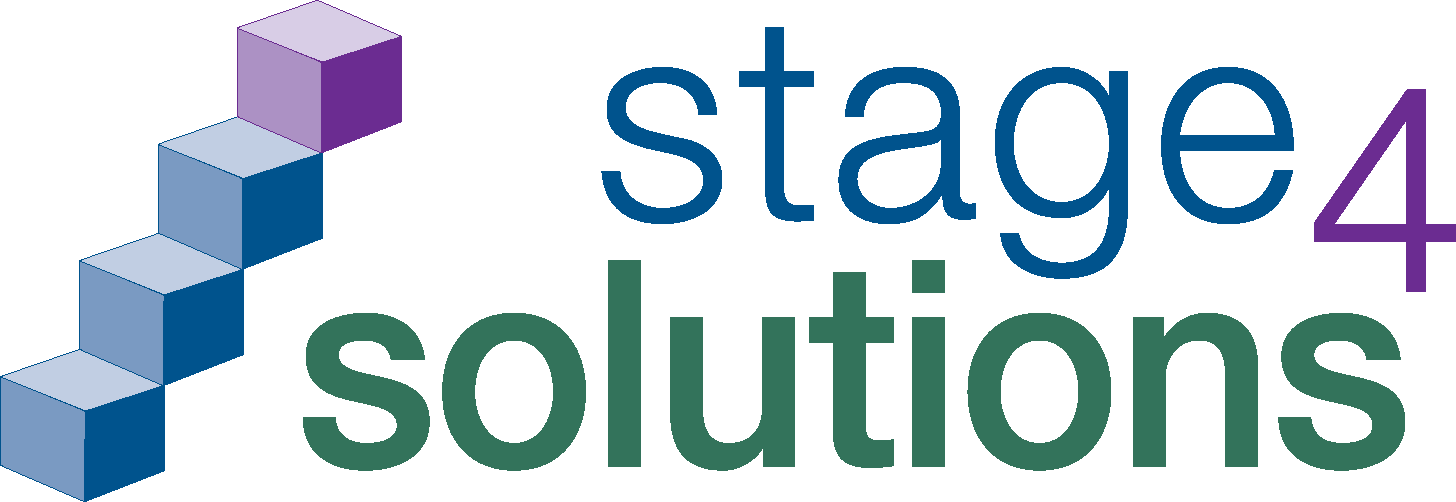Unlocking Productivity: Effective Strategies for Success
- June 24, 2024
- Posted by: Stage 4 Solutions
- Category: Blog

In today’s fast-paced world, productivity is the cornerstone of success, enabling individuals to accomplish their goals efficiently and effectively. However, with numerous demands competing for our attention, finding ways to stay productive can be challenging. We wanted to understand what our network considers the most effective strategy to remain productive and polled our community for their insights.
What is the most effective strategy for you to ensure productivity?
- Prioritizing tasks 47%
- Setting clear goals 25%
- Maintaining attention & focus 17%
- Learning to say “no” 11%
Topping the list with 47% of respondents, prioritizing tasks emerged as the leading strategy for productivity. In a world filled with distractions and competing demands, the ability to distinguish the relative importance or urgency of tasks is crucial. Prioritization allows individuals to allocate their time and resources wisely, ensuring they tackle high-impact activities first while maintaining flexibility to address unforeseen challenges. Effective prioritization can be achieved by using a prioritization matrix to categorize tasks based on their urgency or importance. Creating a to-do list and ranking tasks by priority can provide clarity and direction. Setting deadlines for tasks is a good practice to create a sense of urgency, while regularly reviewing and reassessing priorities ensures that individuals stay on track and adapt to changing demands.
25% of respondents chose “setting clear goals” as the most important element for productivity. Clear goals act as a compass, directing individuals toward their desired outcomes and instilling a sense of purpose in their efforts. By articulating specific objectives, individuals can align their efforts and track their progress along the way. This strategy fosters accountability and motivation, empowering individuals to stay focused on what truly matters and overcome obstacles with clarity and determination. An effective approach to setting clear goals involves breaking down larger objectives into smaller, manageable tasks and establishing measurable milestones to track progress. Documenting goals and revisiting them regularly reinforces commitment and offers opportunities for reflection and adjustment. As individuals achieve smaller goals, their motivation to continue pursuing and completing objectives increases. This momentum contributes to the success of larger projects and benefits the overall team and organization.
According to 17% of respondents, maintaining attention and focus is the most critical component of productivity. In an era characterized by constant connectivity and information overload, staying focused on tasks can be challenging yet essential for peak performance. Implementing mindfulness techniques, such as deep breathing exercises and meditation, can help cultivate the mental discipline needed to sustain concentration. Minimizing distractions by creating a dedicated workspace, turning off notifications if applicable, and setting specific time blocks for focused work can also enhance productivity. One highly effective time management strategy is the Pomodoro Technique, developed by Francesco Cirillo in the late 1980s. This technique breaks work into intervals, typically 25 minutes long, separated by short breaks. Each interval, or “Pomodoro,” involves focusing on a task, and then taking a 5-minute break. After four Pomodoros, a longer break of 15-30 minutes is taken. This method boosts focus, reduces fatigue, and enhances productivity by alternating work and rest periods. This method can be customized based on the individual’s needs.
Finally, 11% of respondents acknowledge the significance of learning to say “no” as a key productivity strategy. In an environment that often glorifies busyness and overcommitment, setting boundaries and managing commitments is essential for preserving one’s time and energy. By respectfully declining non-essential requests and avoiding the trap of people-pleasing, individuals can protect their priorities and focus on tasks that align with their goals and values. This strategy promotes a healthy work-life balance, reduces stress, and empowers individuals to invest their resources in activities that yield the greatest impact and fulfillment. To implement this strategy effectively, individuals should assess their current commitments and identify areas where they can delegate or eliminate tasks. Practicing assertiveness and clear communication can help in setting boundaries without feeling guilty.
In a world where time is a precious commodity, mastering the art of productivity is essential for achieving success and fulfillment. Whether through setting clear goals, prioritizing tasks, maintaining attention and focus, learning to say “no,” or a blend of all, individuals have a diverse array of strategies at their disposal to unlock their productivity potential. By understanding the significance of each strategy and integrating them into their daily lives, individuals can navigate the complexities of modern-day demands, overcome obstacles, and pave the way for a more productive and fulfilling future.
What is your top strategy to remain productive? Please share with us!

